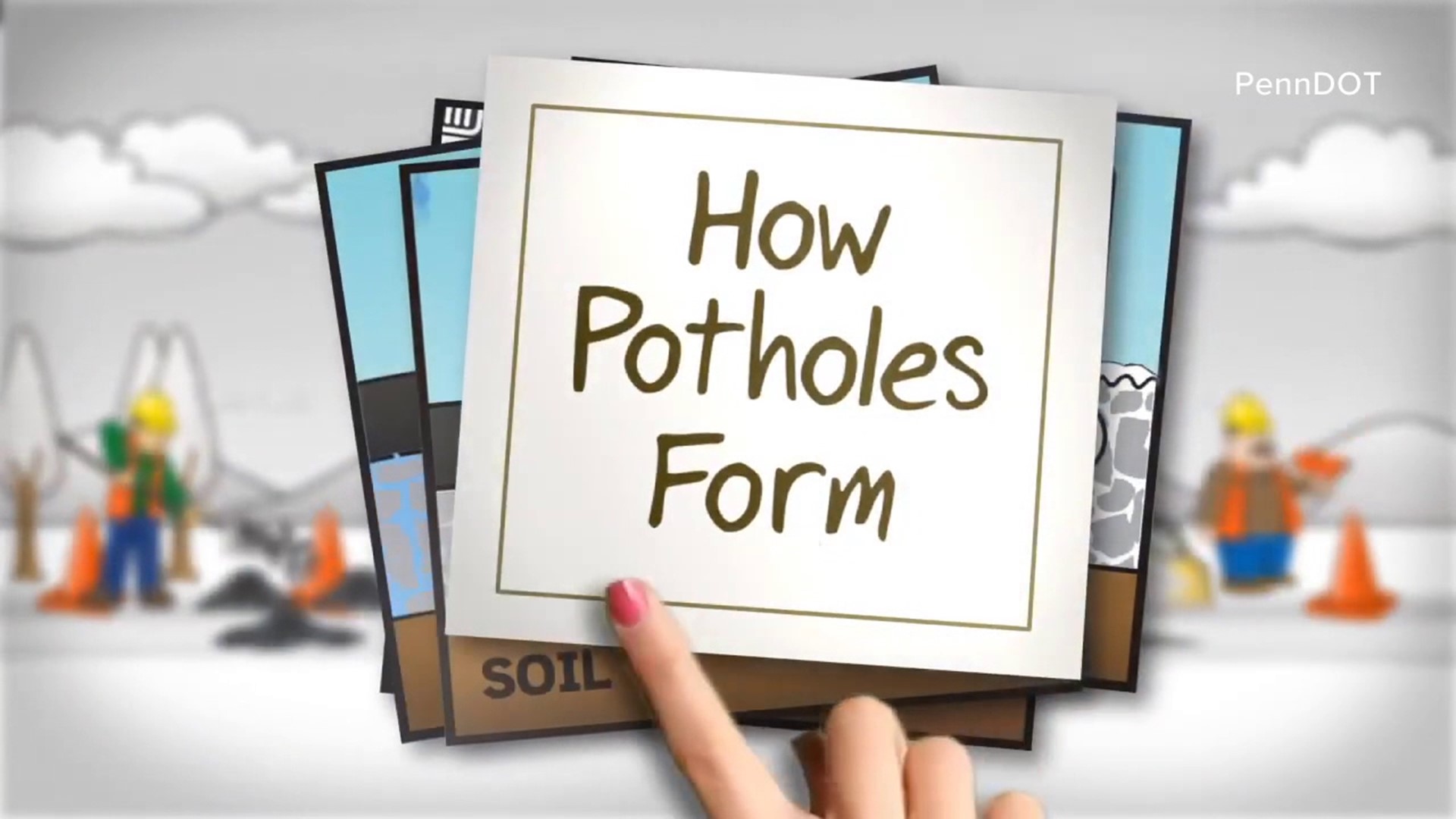PENNSYLVANIA, USA — When it's cold enough for precipitation to freeze and then warm enough for it to thaw, it's called a freeze-thaw cycle and the freeze-thaw cycle here in Pennsylvania is extreme this time of year.
"In our winters in Pennsylvania, the temperature change can be very extreme. It can be cold some days and like this week, it can be very warm," said Maintenance Services Engineer Loni Shalkowski, P.E., PennDOT District 4.
This week is the perfect example of just how extreme the freeze-thaw cycle is thanks to warm, sunny afternoons, and then cold, clear nights.
"We've seen 19, 20 degrees over the last few days, and then it gets up to 40 almost 50 degrees during the day. That really is difficult for us to manage," said Assistant District Executive Maintenance Jonathan Eboli P.E., PennDOT District 4.
PennDOT officials say they see the worst of the freeze-thaw cycle between February 15 and April 15 here in NEPA. And while they might call it freeze-thaw season, you call it pothole season. The constant freeze and thaw of precipitation on the ground is how potholes are formed.
"The precipitation gets underneath our pavement structure. The precipitation freezes and the ground expands. As the ice melts, the water drains out then everything contracts which leaves the cavities for potholes to form," Shalkowski said.
When a car drives over the contracted ground, the pavement surface cracks and creates a pothole in the ground. More precipitation in the winter means more potholes on the roadways, but clouds also play a role.
"That creates a lot of problems because then our roads don't dry out. They stay wet during the day, and then that could seep into the sub-base, freeze at night, and cause additional holes to form. So the sun is helpful to our roads. That's why we do a lot of tree clearing and daylighting," Eboli explained.
Asphalt plants are not open until around the beginning of April. So until then, road crews will use a cold patch to fill the holes which is basically soap, water, and a fine aggregate mixed together. The soap and water evaporate and the material hardens. Road crews will permanently fix the potholes in the spring when those asphalt plants are open.
And you can always report a pothole by calling the hotline 1-800-FIX-ROAD.

